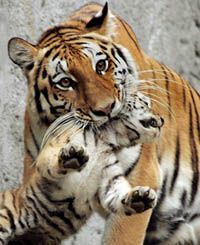
It describes seemingly endless piano and violin sessions that Ms. So “Battle Hymn of the Tiger Mother” chronicles its author’s constant demanding, wheedling, scolding and screaming. She wanted prodigies, even if it meant nonstop, punishing labor. Chua was not about to raise prizeless slackers. “That’s just Disney’s way of appealing to all the people who never win any prizes,” she says. Chua grew up as a Roman Catholic, but her daughters were raised as Jews. She and her husband, another Yale law professor, hired a Chinese nanny to speak Mandarin, though Ms. (“How I wished I could have a bologna sandwich like everyone else!”) She became a law professor and now teaches at Yale. And already her book has a talking point: What does she mean by Chinese and Western? She is of Chinese descent, but she grew up in the American Midwest. Chua claims that this is the essence of tough Chinese parenting, as opposed to the lax Western kind. What kind of mother throws her 3-year-old out in the cold? (“You can’t stay in the house if you don’t listen to Mommy.”) Or complains that her family’s pet rabbits aren’t smart enough? (“They were unintelligent and not at all what they claimed to be.”) Or, most memorably, makes her two daughters’ music lessons so grueling that one girl leaves tooth marks on the piano? The litany of her outrages has made her an instant conversation piece. Chua eagerly overacts the role of wicked witch. In “Eat, Pray, Love,” Elizabeth Gilbert presented herself as a seeker of solace, whereas Ms.

And for all its quotable outbursts from Mama Grisly (the nickname was inevitable), it will gratify the same people who made a hit out of the granola-hearted “Eat, Pray, Love.” Chua’s memoir is about one little narcissist’s book-length search for happiness. She ought to know, because hers is the big one: “Battle Hymn of the Tiger Mother,” a diabolically well-packaged, highly readable screed ostensibly about the art of obsessive parenting. “There are all these new books out there portraying Asian mothers as scheming, callous, overdriven people indifferent to their kids’ true interests,” Amy Chua writes.


 0 kommentar(er)
0 kommentar(er)
